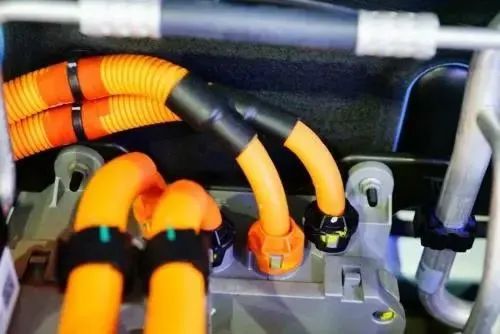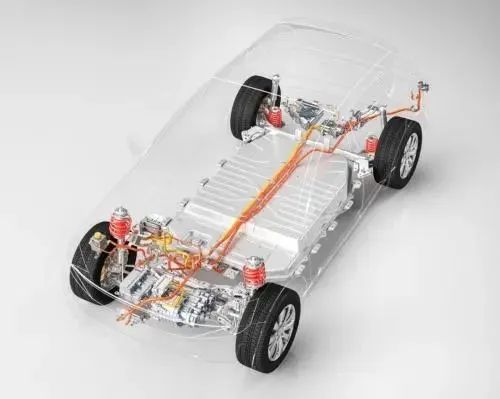Shin-Etsu Chemical Co., Ltd. released a new type of plastic silicone rubber
KE-5641-U. This new type of silicone-based rubber can be applied to high-voltage cable sheaths for electric vehicles. The new material increases the cable’s flexibility and reduces its weight compared to conventional jacket materials. The company aims to expand sales by capitalizing on business opportunities for higher voltages in the drive systems of electric vehicles (EVs) and other electrically powered vehicles.

It is reported that Shin-Etsu’s new silicone rubber has reached the highest level of pressure resistance in the industry, and its dielectric breakdown strength is 40kV/mm, which is about 40kV/mm higher than traditional silicone products.
54%. Higher unit voltage withstand characteristics mean that the same insulation performance can be maintained in thinner high voltage cable jackets, which improves the flexibility of the cable and enables thinner cable diameters and lighter weight.
According to reports, the internal wiring length of Tesla Model Y and other new energy vehicles exceeds 100 meters, and the internal wiring length of some vehicles even exceeds 1,000 meters.
Meters, just like the length of blood vessels in the human body. The disadvantage of traditional cable jacketing materials is that when trying to ensure insulation performance, the jacket becomes thicker, making the car heavier. Therefore, automakers require high-voltage cables with good flexibility and lightweight characteristics to facilitate wiring work. Shin-Etsu’s new silicone greatly optimizes the weight of wiring, enabling improved vehicle energy efficiency.

Shin-Etsu Chemical has currently sent samples to automakers, but the timing of mass production has not yet been determined. In addition to automotive applications, this new silicone can also be used as a sheath material for high-voltage cables in applications such as industrial machinery, railway equipment, and power plant energy storage.



 微信扫一扫打赏
微信扫一扫打赏
